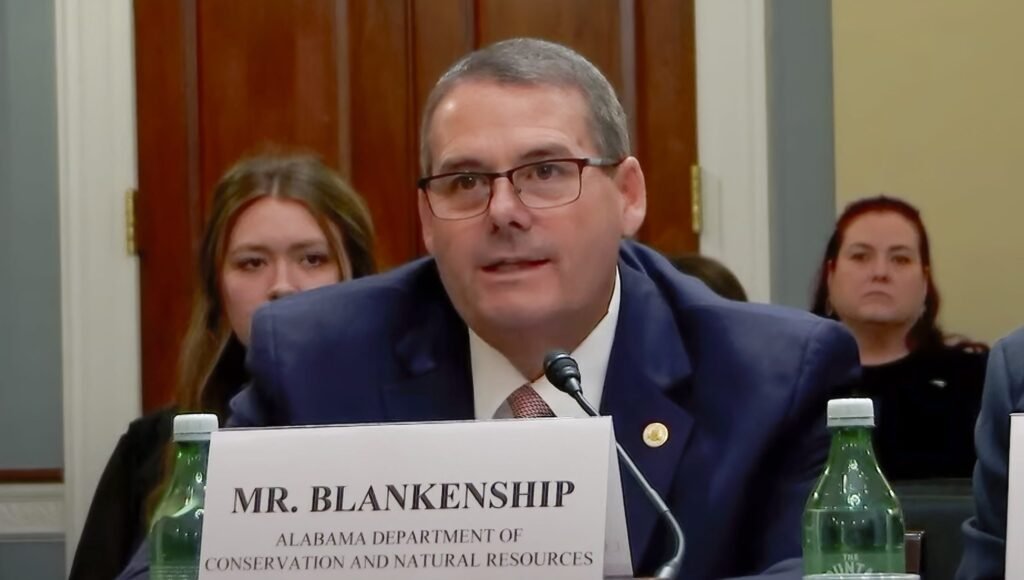
The bad weather over the weekend meant that fewer members of the Alabama Conservation Advisory Board (CAB) could make it to their second meeting at Troy University.
Since their initial meeting in March, CAB members have been integral in supporting the Alabama Department of Conservation and Natural Resources (ADCNR).
During the meeting, Chris Blankenship, a member of the Conservation Committee, shared updates from the recent Alabama legislative session. He expressed gratitude towards Associate Director Ed Pullos, Sherlanna Skaggs, and the legal team for their efforts.
Blankenship noted several important bills, including HB1, which proposed an increase in licensing fees for state seafood dealers. “This bill was brought forward by Rep. Chip Brown from Hollinger’s Island,” he explained. “We’ve added $200 to the seafood dealer license. Initially, this fee will go to the Department of Public Health for seafood testing. Our departments and the Alabama Grocery Association will collaborate with Brown and the senators involved to establish this.”
He also mentioned HB437, which involves creating a shark warning system. Blankenship pointed out that the original proposal was complex, but a compromise has led to a workable solution for notifying the public of verified shark incidents.
Another bill, SB64, addresses the removal of unwanted aquatic plants, emphasizing that any removed plants shouldn’t be left to rot in waterways. “If people or businesses cut down these plants, we need to deal with them properly,” Blankenship said.
SB171 restricts electric vehicles like ATVs from submerged lands, classifying violations as a Class C misdemeanor.
Additionally, Blankenship discussed HB509, which pertains to deer breeders. This legislation faced strong opposition from the ADCNR and various wildlife groups. “We managed to negotiate terms that avoid deer facilities in chronic wasting disease areas. The aim is to ensure safe management practices,” he noted.
On a positive note, Blankenship announced that HB186 has passed, resulting in a budget of $458.7 million for the Department of Conservation and Natural Resources—the largest to date. This includes $6 million from the General Fund specifically for capital improvements. “Two years ago, I didn’t receive anything from the General Fund, so this is a significant change,” he remarked.
The commissioner highlighted various boat access projects, noting that improvements are underway at locations like the Week Bay Lamp parking lot and the Billy Goat Hole Lamp on Dauphin Island. “We just wrapped up the Highway 77 ramp in Rainbow City,” he added.
He also pointed out that Alabama tourism is declaring the next two years as the Year of the Alabama Trail, promoting over 500 miles of trails in the state park system and nearly 400 miles of Forever Wild Property for various outdoor activities.
State Land Director Patty McCurdy discussed leveraging hunting leases on state-managed lands as a revenue source through public auctions. “We provide five-year hunting leases across 140 properties in 32 counties,” she noted.
Blankenship took a moment to bid farewell to Chuck Sykes, the Director of Wildlife and Freshwater Fisheries, acknowledging his contributions over 12 years in office. “Chuck has been instrumental in launching the Special Opportunity Areas program, which has been a fantastic success for Alabama,” he said. “His work has greatly expanded public hunting opportunities and improved habitat.”
During public testimony, board members discussed the possibility of moving the start date for turkey season to early March. Sykes expressed his reservations, citing that he believes the current timing impacts turkey behavior due to hunting pressure.
Future CAB meetings are set for Thursday, May 29th, at the Alabama Department of Agriculture in Montgomery. The agenda will focus on seasonal hunting regulations and marine resource recommendations concerning saltwater fisheries.
















